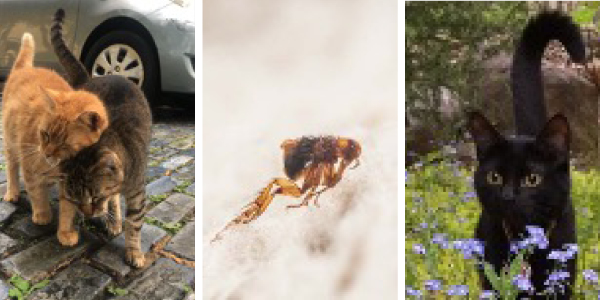As a loving and responsible pet owner, it is essential to provide the best care for your furry friends. One common issue that many pet owners face is dealing with fleas. These pesky insects can cause discomfort and health problems for both your pets and yourself. Fortunately, there are effective ways to treat and prevent flea infestations.
1. Understanding the Signs: It is crucial to be aware of the signs of a flea infestation in your pet. Excessive scratching, hair loss, redness or irritation of the skin, and tiny black specks (flea dirt) on their fur are all telltale signs that your furry friend has become a host to these unwelcome guests.
2. Regular Grooming: Establishing a routine grooming schedule for your pet is an excellent preventive measure against fleas. Regularly brushing their fur not only helps in maintaining cleanliness but also allows you to detect any early signs of flea activity.
3. Flea Treatments: There are several effective flea treatments available in the market today - from topical solutions to oral medications. Consult with your veterinarian to determine which treatment option suits your pet's needs best.
4. Environmental Management: Treating just your pets isn't enough; you need to address potential breeding grounds for fleas as well - be it carpets, bedding, or furniture. Regularly vacuuming these areas and washing bedding on high heat will help eliminate any fleas or eggs lurking within.
5. Natural Remedies: If you prefer natural alternatives or supplementary treatments for controlling fleas, there are various options available such as neem oil, lavender oil sprays, and rosemary baths - all known for their repelling properties against these pests.
6. Prevention Is Key: Once you have successfully treated your pet for fleas, it is vital to invest in preventive measures to avoid reinfestation. This includes regular use of flea prevention products, keeping your surroundings clean, and avoiding contact with other infested animals.
Remember, treating your pet for fleas requires patience and consistency. It is always advisable to seek guidance from your veterinarian to ensure the best course of action for your specific pet's needs. By being proactive in preventing and treating flea infestations, you can provide a safe and comfortable environment for your beloved pets to thrive happily. Remember too, if they are outside they can pick up fleas and bring them home. They can also get into toxic plants.
Read more about toxic plants to cats here!
Author: Kate and Rachel

